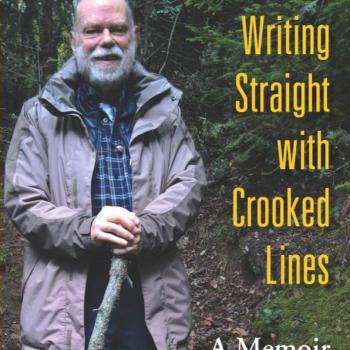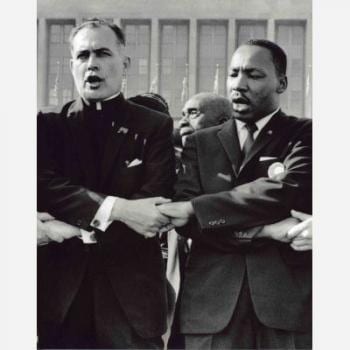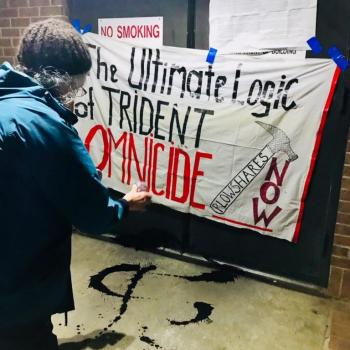[This post concludes Paul Grenier’s dialogue on torture and solidarity. You may also read part 1, part 2, and part 3.]
PROFESSOR. Certainly it is a good idea to take a break, though I disagree that we have exhaustively covered our topic. We have done nothing but review the problem of torture in the abstract and have not even scratched the surface of why the Americans are torturing in fact. After all, not a shred of evidence has come forward that links any cases of torture to the prevention of bomb explosions, whether ticking or non-ticking, whether in the near or the long term. In my own opinion, it is not American survival that is at stake in this torture debate, but the power of the American state, and more specifically, of the Executive branch.
AMBASSADOR. That is easy to say! In fact, it is the commonplace argument of the Left.
PROFESSOR. You are quite right, it is the commonplace argument of the left, and in America that statement alone usually suffices to stop further inquiry. This is the tragedy of American politics at the moment. The right, which claims to be the voice of tradition and religion, speaks in the idiom of Carl Schmitt, who believed that no degree of violence was too great if it was necessary to protect the state, or to protect the peculiarities of one’s civilization. The left, meanwhile, freely criticizes the excesses of state power, but it is precisely the left which on principle rejects the only alternative argument to the one offered by violence.
TALK SHOW HOST. Which is?
PROFESSOR. The Church, of course.
SCIENTIST. Now you have lost even me. The medieval church practically invented torture!
PROFESSOR. I am speaking in shorthand.
TALK SHOW HOST: Wait a minute. I may be no historian, but the church definitely did not invent torture. That is ridiculous!
PROFESSOR. (smiling at the previous speaker). Indeed you are correct. In fact, McCoy, the historian I mentioned earlier, points out that the ancient practice of torture faded out under the influence of Christianity and returned only in the late Middle Ages. But let me try again. By the Church I am referring to a principle which stands beyond the state because it stands beyond the world as a whole.
SCIENTIST. That seems, if I may say so, an extremely evasive way of avoiding the issue. After all, we are not talking about quantum theory here, but a specific institution. Which church are you referring to? The Catholic Church? The Orthodox Church? Or maybe those barbarians in Solovyov’s story had a ‘church’ of their own, one which required the roasting of babies as part of their sacred ritual?
PROFESSOR. For me, as a European, the word ‘church’ has a concrete meaning only in reference to Christ. Christ is of central importance here, among other reasons, because he did not just preach loving one’s enemies, he actually loved them. He preferred death to doing evil and preferred being tortured to torturing others. In this sense, as in all others, from my perspective, Christ sets the standard of perfection.
TALK SHOW HOST. But … what does all this have to do with politics?
PROFESSOR. I will get to that in a minute. For present purposes, it is the nature of the standard that concerns us. Virtually the same standard of perfection can be found in ancient Greek thought, in the person of Socrates. It is enough to re-read the dialogue Gorgias to see this plainly.
TALK SHOW HOST. (laughs) Re-read Plato’s Gorgias, you say! You are very polite. But for those of us who haven’t read it at all, could you explain your point?
PROFESSOR. Yes, of course. [He fishes around in his leather case, crammed with books and papers, and extracts a slender volume.] I happen to have a copy here, as I referred to a passage from it at the conference. The main characters in the dialogue are Socrates and Callicles. Callicles takes the position which, in our modern age, will again be picked up by Nietzsche. Virtue is strength, and ‘morality’ is just a ruse used by the weak to limit the strong. But in reality everyone prefers to be a tyrant, if they can get away with it.
Their debate is rather long and involved, so I will just skip all that [he thumbs through the book a moment] … here is one of those passages where Socrates strikes a plainly Christian note. “Do you think,” Socrates asks Callicles, “that this is the object of our lives: to live as long as possible, to lavish all our care upon the cultivation of those arts which may save us from danger—just as you keep urging me to cultivate the rhetoric that may keep me safe in the law courts?” Or listen to this passage: “Of death itself surely no one who is not an absolute fool or coward can be afraid; it is to do injustice that men fear.”
AMBASSADOR. But you have to distinguish between the realm of the religious and the realm of the political. You referred to Schmitt earlier – whose work, by the way, has influenced the European left no less than the right. But as easy as it is to demonize him, given his Nazi past, his concept of the political cannot be dismissed so easily. After all, there would be no Christianity if someone didn’t fight to preserve it from its enemies. Schmitt speaks to precisely this point when he says “never in the thousand-year struggle between Christians and Moslems did it occur to a Christian to surrender rather than defend Europe out of love toward the Saracens or Turks.”[i] Love of one’s enemies in the Bible refers to the private sphere, to private enemies, not the political enemy. The difference is crucial. It is the difference between sacrificing one’s own life, and sacrificing the lives of an entire nation, or of an entire civilization.
But there is an even greater difficulty. Socrates may be right that it is better to die than it is to do evil. But we live in the real world, not a philosophy book. Here I think Strauss’s reading of Socrates deserves a second look, because it is more complex than what you are saying here, and less one-sided.
I know that Leo Strauss is nowadays accused of every crime in the book, but most of his critics don’t know what they are talking about because they have never read him, or at least not carefully. You will recall that, in the Republic, there is a character almost identical to Callicles called Thrasymachus. I won’t go into a lot of detail, as I don’t have it memorized and I don’t happen to carry around a copy of the Republic in my back pocket. Suffice it to say that Thrasymachus is brutal and tough in just the same way Callicles is. Now Strauss says that, if you read the Republic carefully, it becomes clear that Plato saw Thrasymachus as an ally in the running of the state – you need a bit of his sort of toughness to impress the young men, or – what is more important to our conversation – terrorists. We know for certain the latter couldn’t give a damn about fine ideals. You can’t do foreign policy in the real world without getting your hands dirty.
PROFESSOR. I agree with you that Strauss is often accused of crimes he never committed, although, for the record, he might have written more clearly if he wanted to avoid such accusations. In any case, when Strauss says that you need both Socrates and Thrasymachus, isn’t that just another way of affirming the tension between politics and the church that Strauss saw as insoluble? It’s what he repeatedly described as the theo-political problem.
But I also think Strauss’s ambiguity here is what gets some of his disciples into trouble. Strauss asserts somewhere that you cannot nail down in advance exactly what measures of violence might be needed to defend the state. This can easily be interpreted to mean that there are no limits at all. I don’t think that is what he meant. At any rate, what would be truer to say is this: in political action, there are limits beyond which we cannot go, but a rule or dogma can’t tell us exactly what must be done in every concrete situation. The correct decision must take into account all the relevant details. That is why ultimately we would need to leave to prudence the decision about any actual ticking time bomb situation.
But let’s return to Strauss’s theo-political dilemma. What does political dogma tell us if we consider politics as a wholly independent ‘science’? It tells us to do what Callicles and Thrasymachus suggest: to make use of any measure of violence to pursue our ends, but to hide this cleverly, making it appear that we are doing good. This will be particularly true in the state of nature, in the international realm. What does religion tell us? If we try to turn it into a rule, we might well come up with Tolstoy’s maxim that we must never, under any circumstances, make use of violence. This was how he interpreted Christ’s message of loving one’s enemies.
The way I read Strauss, he recognized that there is no rational resolution to this conflict. But Strauss unnecessarily left the problem hanging in mid-air. Solovyov’s answer, to which I alluded earlier, has two steps to it. First, there is the ideal, which is the perfect good. This ideal can be rationally expressed and we must strive to reach it. In the realm of war, the ideal tells us this: the only legitimate aim of war is to limit evils being done to others. Furthermore, we must wage war in such a way that it spares the enemy as much as possible, because we seek the enemies’ good as well as our own. True politics is not a compromise between this approach and its opposite, that of Thrasymachus. It is a sincere attempt at realizing this ideal. That is step one.
Now we turn to step two, which is the recognition that the implementation of this ideal cannot be reduced to a rule or formula, such as Tolstoy’s Kantian ideal of non-violence in every situation. But if we don’t have a rule, what is left? The inspiration of the good. But such an inspiration in the moment can only come from what is itself alive, perfectly good and perfectly intelligent – in short, from the perfect man, which is Christ. Political action should be grounded in Christ who, of course, is still alive.
Now, I am perfectly aware that this raises Hobbes’ problem of false prophets. Who is inspired in this living sense? There are never certainties here. Spiritual life is unlike chemistry except in one respect: in the spiritual realm too we learn almost all we need to know from observation. An inspired prophet will have a spontaneous and joyful spirit, and be prone to unexpected acts of generosity. Solovyov himself displayed exactly that spirit when, for example, he urged Czar Alexander III to spare the lives of the terrorist assassins of Czar Alexander II and thereby heal the relationship between the people and the Russian state. For his pains, Solovyov, Russia’s greatest philosopher, was banned from teaching in any Russian university for the rest of his life. A quarter century later Russia entered a hell from which it has still not recovered. Sometimes I wonder whether America and Israel, with their insistence on pursuing national security in a Schmittian spirit, aren’t setting up a very similar dynamic …
TALK SHOW HOST: Well, this is all very interesting and even eloquent. I felt, while listening to you, almost as if I had returned to my idealistic college days! But I wonder still whether all this is very practical. You say that politics should be guided by the direct inspiration of the good, and that this inspiration comes from a living relationship with Christ or God. But even in the U.S. Christianity is just one belief system among many. And who, after our experience with poor President Bush, will ever again believe that an American president truly gets his inspiration directly from God – or that we should be happy about it even if he does? After all, President Bush said God was urging him to invade Iraq, and look how well that turned out!
PROFESSOR: Do you want my real opinion? Because if you do, it will delay our walk and the sun is getting low …
TALK SHOW HOST: Can you try to be brief, then?
PROFESSOR: I will do my best. As regards Mr. Bush: “By their fruits you will know them.” In responding to Sept. 11 by approving torture and starting a series of wars, the Bush-Cheney administration displayed the very opposite of that generosity and prudence to which I just referred. You can talk about God all you want: actions are what we should attend to. Besides, for my money it was always obvious that Bush-era foreign policy was run out of the vice-president’s office …
Second, it is in any case hypocritical to identify America’s moral failures with the ‘religiosity’ of the Bush-Cheney administration. After all, putting a staunchly secular Democrat in the White House has made things mostly worse. The truth is, both our fake Christians and our sincere secularists make use of the same utilitarian logic in their endless quest for an illusory absolute ‘security.’ Should it surprise us that their actions are nearly identical?
Finally, there’s something less obvious that I want to bring to your attention: the inadequacy of our secular vocabulary, with its language of rights and democracy. We treat these middle-level concepts as if they were divine absolutes, when they clearly are not.
Supporters of human rights are of course correct when they oppose torture. But can the notion of human rights prove the inadmissibility of torture? No, because one can just as easily point to the ‘right’ of the many to be safe from potential terrorists. This supposedly sacred right to absolute security is precisely the argument Mr. Cheney uses so effectively in his speeches, and to which mainstream opinion has no good answer.
TALK SHOW HOST. I still don’t understand. Aren’t rights the same thing as what you call ‘the good’?
PROFESSOR. No, they are not. That describes neither the origin of the concept nor its present usage. When Hobbes invented rights his aim was to ground politics in something prior to moral reflection – and especially in something unburdened by Christian religion and ancient philosophy. The source of rights for Hobbes is our fear of death. Since every person without exception flees death, everyone has an equal right to do what it takes to stay alive. That, as Pierre Manent reminds us, is the origin of modern rights. Since foreign relations takes place squarely within Hobbes ‘state of nature,’ the war of all against all, the amoral ‘right’ to do ‘whatever is necessary’ reigns.
Meanwhile, had we listened to the Catholic pope, we wouldn’t have invaded Iraq and we certainly wouldn’t have practiced torture. And for this very reason, it is always humanity as a whole, and not particular nations that concerns the church. Remember St. Paul’s “There is neither Jew nor Greek, there is neither bond nor free, there is neither male nor female: for you are all one in Christ Jesus”[ii] Without the Church, without Christ or something in the spirit of Christ, we will always be tempted by a utilitarian logic such as security through torture. True human solidarity requires a sort of miracle, something which we can only receive from beyond this world.
TALK SHOW HOST: Are you saying, then, that America should be guided by the Catholic Church? Wouldn’t that be a theocracy, like in the Middle Ages? Oh, I forgot, that’s what you particularly like isn’t it, the Middle Ages!
PROFESSOR: No, I am not calling for a theocracy. Nor am I saying that the Catholic Church is the only inspired authority in the modern world – though one could do worse. I don’t know what forms will prove practical, but actually all that is quite secondary. What is important for now is the recognition that we have reached the end of the secular age. Not in the sense that all of our secular institutions should be replaced – I would love, for example, to see the resurrection of our habeas corpus rights. My point is that we can no longer be satisfied with nothing but secular language and practice. The church in some form must return to the public realm as a serious participant – I would say even as the most serious participant. If, that is, we wish to retain our humanity.
But it is late, and I would not want anyone to miss their chance to see this beautiful city. Perhaps we can return to the many difficult questions we have yet to answer some other day.
The participants began to disperse at this point, mumbling, some apparently sincerely, about their hopes of meeting again soon to continue the conversation. As they left, I overheard the following brief exchange between the Professor and the Scientist.
SCIENTIST: In case we don’t get the chance to continue, tell me in a word why you think America makes use of torture.
PROFESSOR: To tell lies.
The Scientist nodded, and then they both walked away.
END
[i] The Concept of the Political (Chicago: University of Chicago Press, 1996), 29
[ii] St. Paul, Epistle to the Galatians, 3:28.
Image Source: Wikimedia Commons













